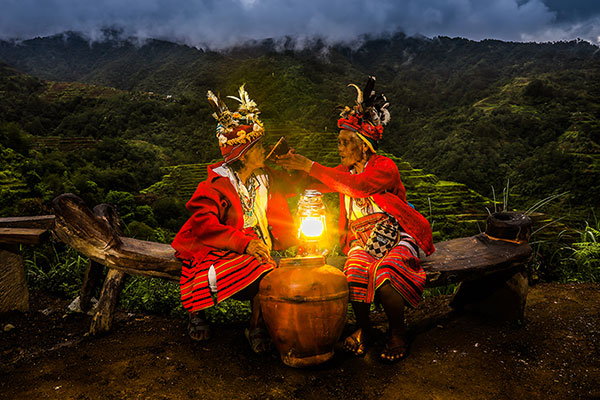The women in the Kamatira region are in a league of their own. They share a special bond of sisterhood between themselves as they all know the common struggle of creating a space for their own in a patriarchal society that still dictates gender roles and norms for the men and the women of the community. They have understood that navigating this deep-rooted social system requires eloquence in their actions because of their little say in any decision-making process. The Pokot indigenous people predominantly inhabit the Kamatira site, most of whom are agro-pastoralists. For women, engaging with nature is a way of life; that’s just how it has been for many years. They are dependent on the Kamatira Forest, which stands at an elevation of 1,856 metres and is situated southwest of Chepareria, in the northeast of Charangani Hills, with the Kapenguria-Lodwar highway passing through the forest, for natural resources and medicines. However, the women in Kamatira also understand that nature requires gentle human nurturing for a symbiotic relationship that future generations can enjoy.
Today, on Desertification and Drought Day, we celebrate the various environmentally friendly and sustainable practices that the women in Kamatira have adopted to give back to the same Forest that nurtures them every day.
Desertification and Drought Day, observed on 17 June each year, is a global event established by the United Nations to raise awareness about the dangers of desertification, land degradation, and drought. The day highlights these environmental issues’ significant impacts on ecosystems, human livelihoods, and global food security. It also promotes efforts to combat desertification and mitigate the effects of drought through sustainable land management practices. The United Nations Convention to Combat Desertification (UNCCD) organizes the event to educate the public and policymakers on the importance of land restoration and its role in achieving sustainable development goals. The UNCCD also recognises the important role of women in sustainable land management and, hence, adopted the Gender Action Plan (GAP) in 2017, which serves as a guiding document for all parties and other actors to mainstream gender issues in land management.
The Kunming-Montreal Global Biodiversity Framework (KM-GBF) also known as the Biodiversity Plan, includes several Targets that address desertification and drought, emphasizing the need for ecosystem restoration, sustainable land management, and resilience building. More specifically, they are addressed in the Targets mentioned below,
Target 2: Restore 30% of all Degraded Ecosystems
Target 3: Conserve 30% of Land, Waters and Seas
Target 8: Minimize the Impacts of Climate Change on Biodiversity and Build Resilience
Target 10: Enhance Biodiversity and Sustainability in Agriculture, Aquaculture, Fisheries, and Forestry
Target 11: Restore, Maintain and Enhance Nature’s Contributions to People
Target 12: Enhance Green Spaces and Urban Planning for Human Well-Being and Biodiversity
Today, 17 June 2024, also marks the 30th Anniversary of UNCCD. To find out more about Desertification and Drought Day, please visit here.
About Pastoral Communities Empowerment Programme (PACEP)
PACEP is the restoration site partner of Women4Biodiversity in Kenya. Under the “Building Resilience and Weaving Gender-responsive Approaches to Biodiversity Governance” project, PACEP is working with the community to restore 2.02 hectares of coverage in the Kamatira Forest. One of the focus of the project is to develop skills and governance of the Pokot Indigenous women on sustainable management and conservation of the ecosystems and biodiversity of the Kamatira forest.
📖 Read the legal review on ‘An Assessment of Gender and Biodiversity Links in NBSAP, NR and National Biodiversity Policies in Kenya’
📖 Read a short report on tree nurseries, Rooted Resilience: A Report on Tree Nurseries initiated by the Indigenous women in West Pokot for Biodiversity Conservation
📖 Read a briefer to learn all about the Project in English, French and Spanish
📷 See the photo story on how Jikos are created.
ℹ️ FOR MORE INFORMATION, please click here.


